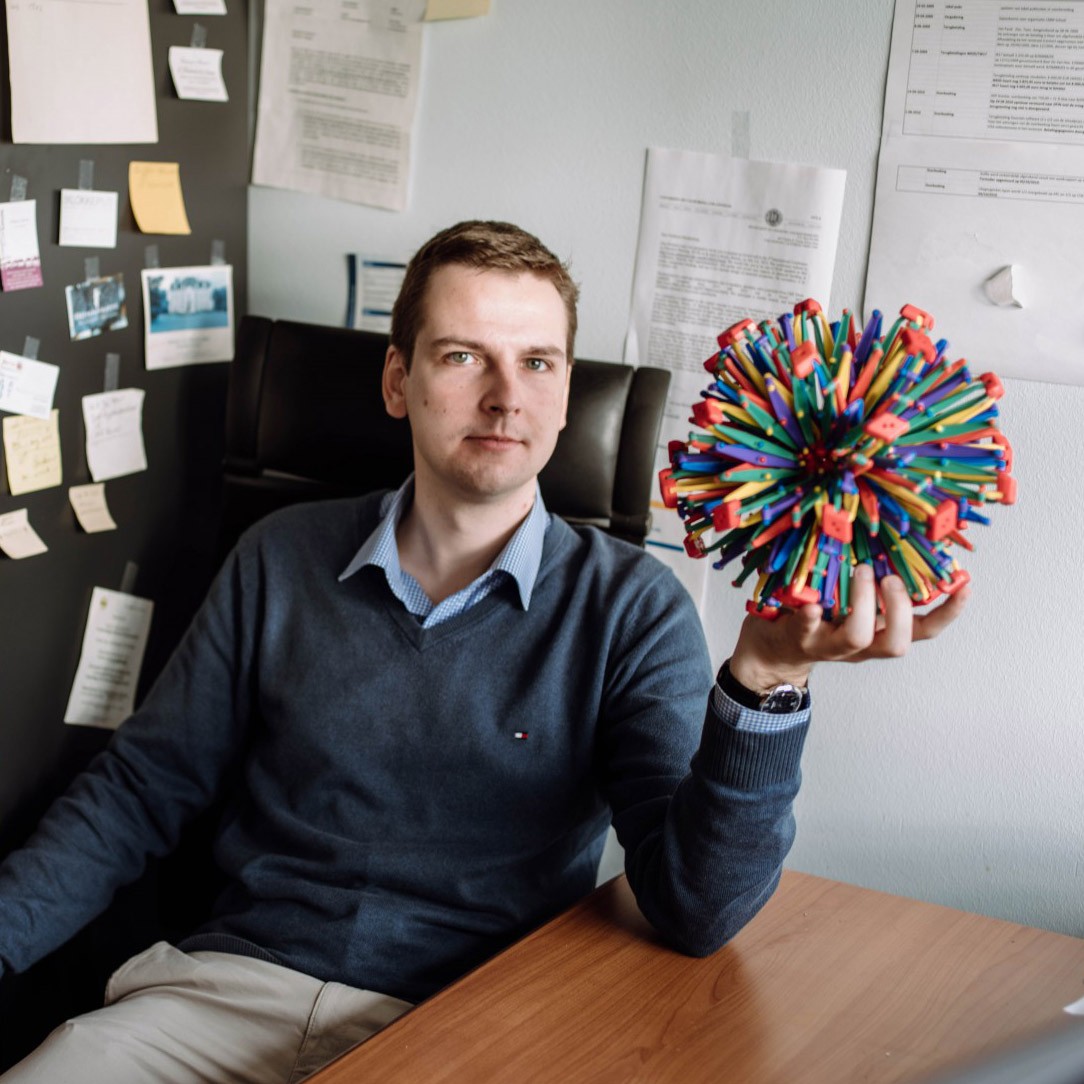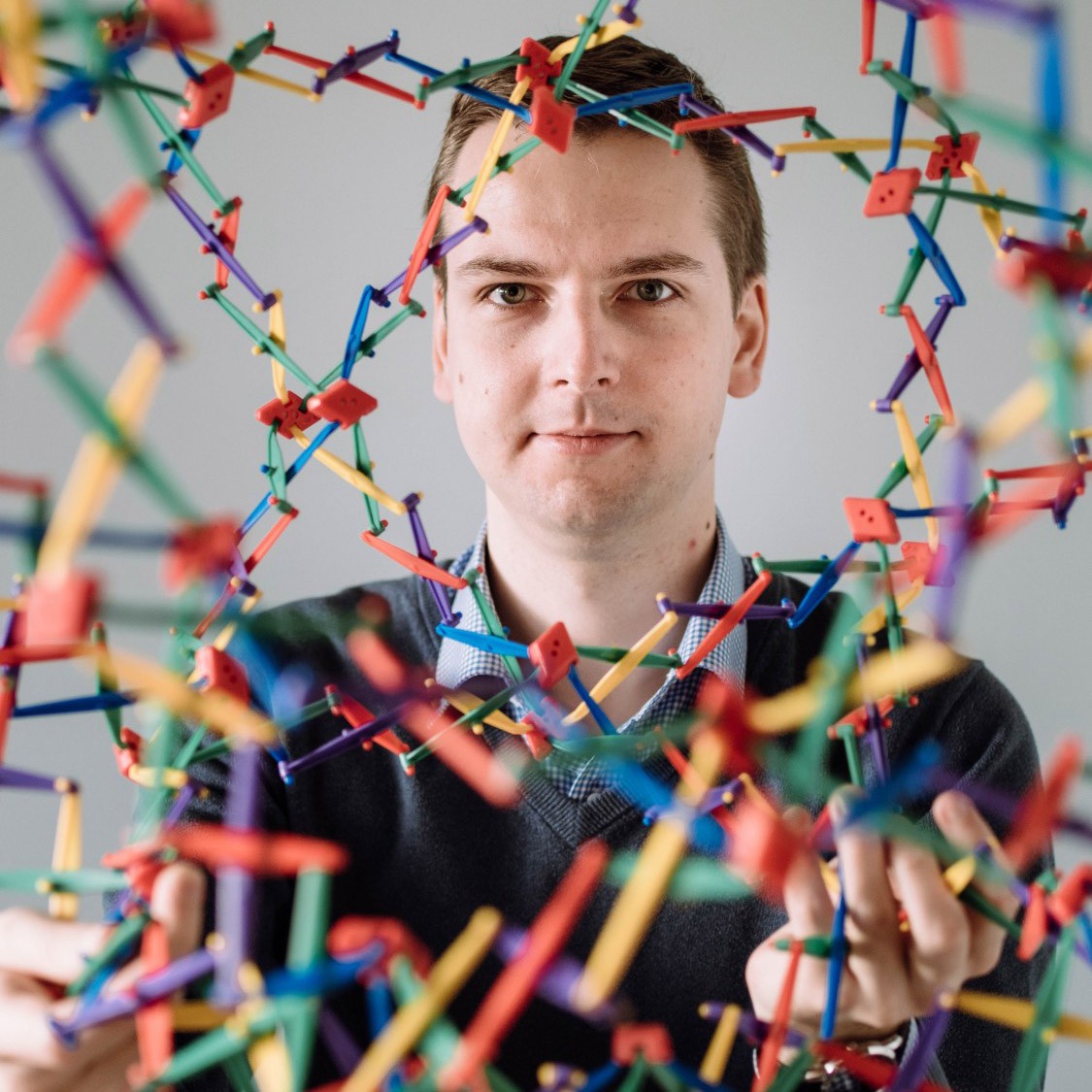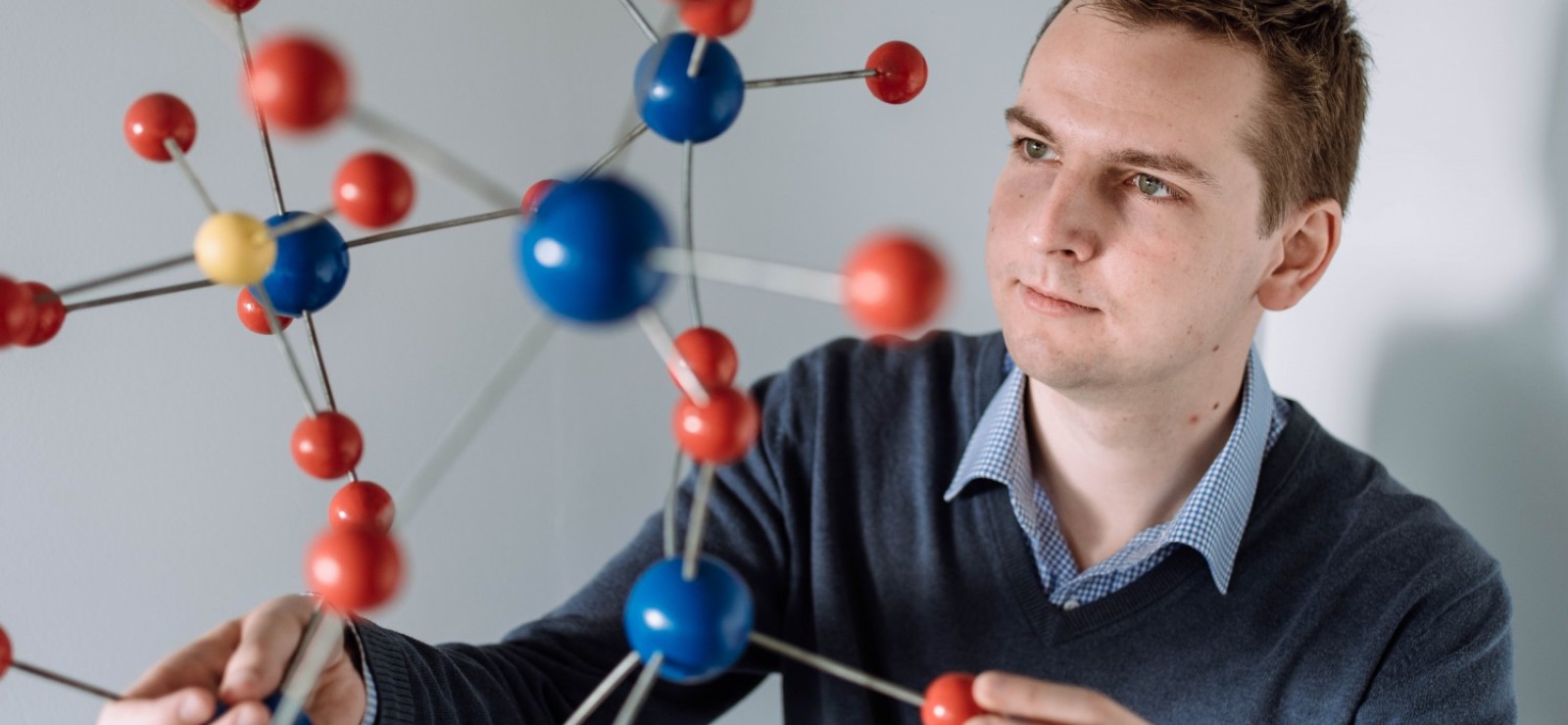He might not have become an explorer, but for Sven Rogge, his job as a civil physical engineer feels rather similar. He plays with molecular models, in the hope of one day finding an application that will make the world a little better.
What caused you to research molecules?
“As a child I dreamed of becoming an explorer. I was always fascinated by space and things that are still to be discovered, and actually I still am. What I am doing now feels quite similar. I explore, study and discover. Not on an ever larger scale, as in space, but in completely the opposite direction. I consider an ever smaller scale.”
What exactly are you investigating?
“I make molecular models on an atomic scale. I design materials, but computationally. Theoretically, in other words. So, for example, materials that CO2 can extract from the air and store. I investigate how I can adapt these materials and their interactions with the molecules in such a way that they work as efficiently as possible.”
How does that work?
“Take cat litter, for example. This contains particles that absorb bad odours, so-called zeolites. These are natural materials whose composition of atoms we can hardly change. To imitate something like that or find similar uses, we look for alternative materials which offer a wider playing field. This includes materials that, as you might say, we build up atom by atom.”
What kind of applications are you able to create?
“The scope is tremendously broad. Odour absorption is one, but another example is CO2 absorption. For some time now, we have been working on a material that might be useful as a shock absorber. A few years ago, colleagues from University of Oxford discovered a material which, when placed in water, uses more energy to get water in than is released when the water comes out again. In other words: the material absorbs energy.”

So you set to work with their findings?
“The researchers at University of Oxford might have discovered that the material can absorb energy, but they didn’t understand how. Since we have lots of experience in molecular modelling they came to us. We have exposed the mechanism behind it and learned that it is due to the fact that it consists of pores and the way these interact. We also discovered that the faster water comes into contact with the material, the more energy the material absorbs. A phenomenal discovery, that immediately lends itself to use in shock absorbers, for example.”
So we may soon be able to buy shock absorbers made of this material?
“In theory, yes. However, its application in our daily lives is still a long way off. Given the characteristics of the material we are thinking of crash barriers, bumpers and cycle helmets. But you must not forget that you need water. If you design a cycle helmet with water it will be really heavy and no-one will wear it. That’s why, primarily, we are thinking of industrial applications, where the weight of water is less of a concern.”
Then the applications are not to be expected immediately?
“That’s right. The closest we are now coming to an application is an experiment where the theory works and in which we can work towards an industrial application. There is little chance that we develop bumpers and cycle helmets based on water. That is one of the great challenges in fundamental research: without an application it is really difficult to make the connection with society.”

And is that connection with society so very important?
“The fact that we are somehow serving society means our work is largely funded by government bodies. Yet in reality you see that if you want to get people excited by research you need that connection with society. By showing the advantages. Even so, we should never allow our work to depend on the hype of the day. Otherwise it is no longer fundamental research.”
That’s already a nice argument in favour of fundamental research.
“Whatever happens in society, fundamental research will always be relevant. Just because there is no immediate use for something does not mean it is unimportant. Just think about the vaccines against the coronavirus. The fact they could be produced so quickly was because there was once fundamental research into this kind of vaccine, even before corona was on the cards.”
Do fundamental researchers create too little connection with society?
“I think that in general as a university community we do too little of that. There are some simple techniques you can apply, but you need to know them. For example, it is better to explain your research using specific applications, and it is best not to make your presentation too long, in order to avoid losing people’s attention. If we all make a little more effort to make research comprehensible, we may find that more young people who dream of becoming explorers end up in fundamental research (laughs).”
Sven Rogge is FWO senior postdoctoral researcher at the Center for Molecular Modeling (CMM). Favourite spot at Ghent University: the entrance hall at the Plateau, because of its grandeur.
Read also
'Belgian Nobel Prize' for pioneering work by Professor Veronique Van Speybroeck
Professor Veronique Van Speybroeck is one of the world's leading researchers concerning sustainable technologies. For making groundbreaking contributions to the computer modelling of catalysis, she wins the prestigious Francqui Prize for Exact Sciences.

